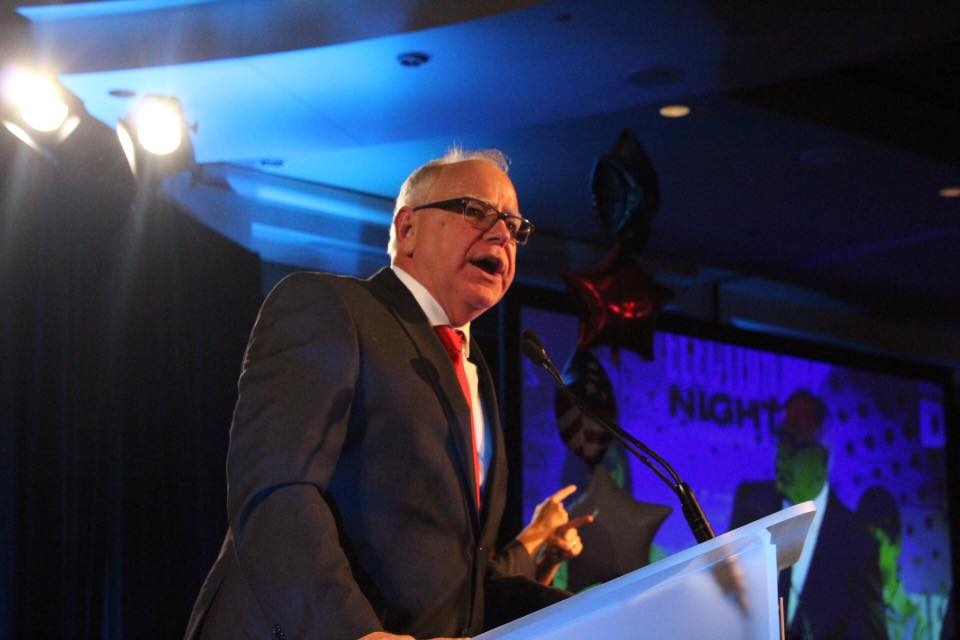Coronavirus
Walz shuts schools; Minnesota sees COVID-19 community spread

ST. PAUL, Minn. (AP) — Minnesota Gov. Tim Walz on Sunday ordered public schools to temporarily close to give administrators and teachers time to make plans for switching to distance learning as the number of people with COVID-19 increases, while health officials confirmed the state’s first cases of community transmission and the Legislature scaled back its business.
Schools will be closed to kindergarten through 12th grade students by Wednesday and will remain shut down through March 27, the governor said at a news conference. Several have already announced plans to close by Monday or Tuesday.
“While children have proven to be less vulnerable to this virus (and) we haven’t seen significant spreading in our schools, we do anticipate that COVID-19 will have a sizable impact on our education system in the coming weeks, months and potentially the coming year,” Walz said. “We cannot wait until the pandemic is in our schools to figure things out.”
Minnesota’s case total rose to 35 Sunday, up 14 from Saturday. They included three cases of community transmission, in which the patients had no recent travel outside of Minnesota and no known exposure to an infected person, Kris Ehresmann, state’s infectious disease director, said on a conference call for reporters. Now that community transmission has been confirmed, she said, its even more important for vulnerable people to protect themselves
“People who are 70 and older, or people of any age who have underlying health conditions that put them at a higher risk of severe illness from COVID-19, should stay home and avoid gatherings or other situations of potential exposures, including travel,” Ehresmann said.
Late Sunday, legislative leaders said they would hold floor sessions and committee meetings only on a limited basis through April 14, and only in spaces that allow six feet of distance between individuals.
For most people, the new coronavirus causes only mild or moderate symptoms, such as fever and cough. For some, especially older adults and people with existing health problems, it can cause more severe illness, including pneumonia. The vast majority of people recover within weeks.
Most of the 14 new patients reside in the seven-county Twin Cities metropolitan area, including the three who caught the disease from community spread, Ehresmann said. The new patients ranged from 20 to 94 years old. One new patient was hospitalized Sunday, while a previously reported patient was still in critical condition. Only one of the state’s 35 cases had a school connection, a teenager in Dakota County who was reported Saturday, Ehresmann said.
Walz and other administration officials acknowledged the school closures will cause significant disruptions.
“This is a precautionary measure so our educators are prepared should we need to close schools statewide for longer,” said Education Commissioner Mary Cathryn Ricker, who went on to say at the governor’s news conference: “We are not accommodating a couple snow days. We are planning for the potential of weeks of distance learning delivery.”
Walz’s order requires schools to provide care for elementary-age children of healthcare professionals, first responders and other emergency personnel to make sure those workers can continue their defense against the virus. Districts should make every effort to provide meals to the tens of thousands of students who depend on school meals, he said.
Schools are expected to continue to pay hourly workers, Ricker said.
On Friday, the governor declared a peacetime state of emergency and issued a series of recommendations that included canceling or postponing gatherings of 250 people or more. He wasn’t ready to order school closures then. But he said officials came up with plans over the weekend for how to make it work.
The governor also said that he couldn’t rule out closing restaurants and bars eventually.
According to the World Health Organization, people with mild cases of COVID-19 recover in about two weeks, while those with more severe cases may take three to six weeks to get better. More than 156,000 people have been infected, and more than 73,900 have recovered. More than 5,800 people have died.
“For everyone, the single most important thing we can do is to stay home when we’re sick, whether we think that has anything to do with COVID or not,” Health Commissioner Jan Malcolm stressed.







